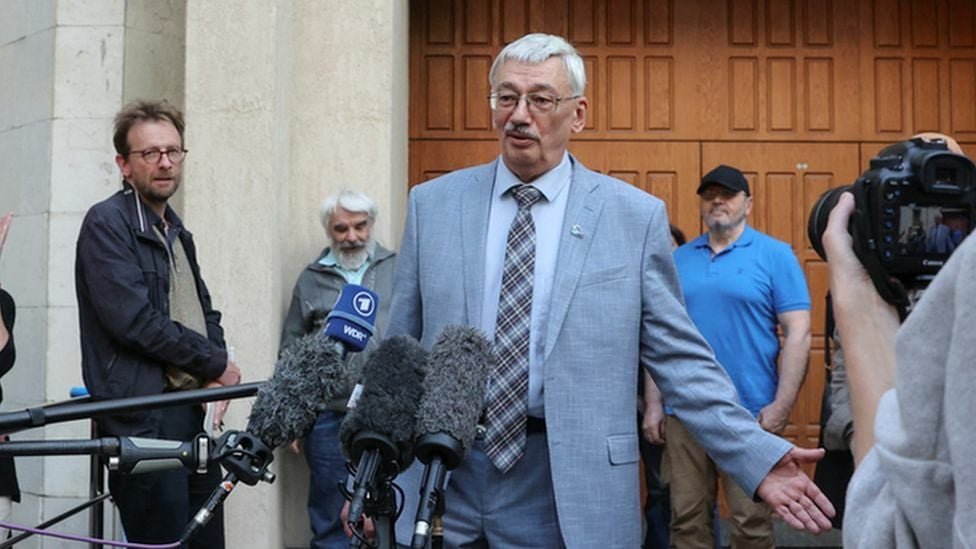Russian activist faces prison for discrediting army amid war criticism crackdown

Oleg Orlov, a prominent Russian human rights activist, has been making headlines as he faces trial for criticising the war in Ukraine. Upon entering the Moscow courtroom, Orlov displayed a book titled End of the Regime, recommending it to the cameras present. The 70-year-old has been vocal in his opposition to both the war in Ukraine and the Kremlin’s crackdown on dissent within Russia.
Since the invasion of Ukraine in February 2022, thousands of Russians have faced prosecution under new laws aimed at suppressing criticism of the country’s war efforts. Orlov is on trial for allegedly violating one such law, facing up to three years in prison for “discrediting” the Russian army with his criticism.
Orlov argues that his prosecution is a violation of the Russian Constitution, which guarantees freedom of speech. He also contends that the war in Ukraine is against Russia and its citizens’ interests and that claims of preserving international peace and security are nonsensical.
The Russian authorities have employed various repressive laws to punish critics of the government and opponents of the war in Ukraine. These laws criminalise “discreditation” of the army and the “public dissemination of deliberately false information about the use of the Russian armed forces.” The latter, often referred to as the “Law on Fakes,” has been used to imprison vocal Kremlin critics, such as Ilya Yashin, who was sentenced to eight-and-a-half years in jail last year.
Other examples of the crackdown on dissent include theatre director Zhenya Berkovich, charged with “justifying terrorism” after writing and posting anti-war poems, and Kremlin critic and anti-war activist Vladimir Kara-Murza, convicted of treason and sentenced to 25 years in a prison colony.
Orlov’s trial has attracted international condemnation, with the Council of Europe denouncing it as “a travesty of justice.” The organisation’s Commissioner for Human Rights, Dunja Mijatovic, emphasised the importance of strong and clear messages against such actions.
In Moscow, citizens continue to show support for political prisoners through letter-writing events organised by Yabloko, one of the few remaining liberal parties in Russia. Participants express feelings of guilt and solidarity, hoping that their messages can offer some comfort to those imprisoned for expressing their opinions.
As repression increases in Russia, those who write postcards to prisoners demonstrate that they will not be silenced.
Latest Thailand News
Follow The Thaiger on Google News:


























